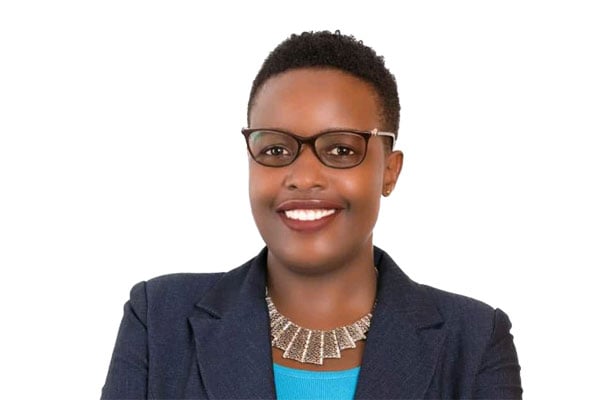International Women’s Day: Celebrating a glass half full

Author: Lydia Wanyoto. PHOTO/FILE
What you need to know:
- Both the international and national themes are apt because they both speak to the same thing – ending the remaining vestiges of inequality and disempowerment suffered by women.
Today marks 47 years since the United Nations Organization declared 8th March a global holiday to mark laudable milestones in the women’s movement. During this time, a lot of water has flown under the bridge, with plucky women around the world breaking glass ceilings and finding their place in fields that had for eons been a preserve of men.
Today, women leaders in all realms struggling to expand the space of women in an increasingly competitive world do so on the shoulders of those who came before us. From the suffragettes like Emmaline Pankhurst and Evaline Hilda Burkitt whose protracted and meritorious struggle earned women a right to vote in Britain, to pioneering businesswomen like Lydia Pinkham and Olive Ann Beech, whose successful forays into industry and trade opened new possibilities for fellow women, the sacrifices of women who lit the way for us cannot be overestimated.
From our very own trailblazers in the quest for women to have a place in the political arena, Joyce Mpanga (RIP) and Rhoda Kalema, to forerunners in the quest for girl child education, Sarah Nyendwoha Ntiro and Florence Nekyon Masaba, its possible that these plucky women were inspired by suffragettes who refused to believe that women should be denied the right to vote simply because of the accident of their sex at birth.
This year, International Women’s Day will be centered around the theme – Invest in Women: Accelerate Progress. Today, Uganda will join the rest of the world to celebrate International Women’s Day in Katakwi District under the theme: “Accelerating Gender Equality through Women’s Economic Empowerment.”
Both the international and national themes are apt because they both speak to the same thing – ending the remaining vestiges of inequality and disempowerment suffered by women. In particular, the national theme speaks to the principle of equality and non-discrimination enshrined in Article 21 of Uganda’s Constitution.
Article 21 (2) notes: “Without prejudice to clause (1) of this article, a person shall not be discriminated against on the ground of sex, race, color, ethnic origin, tribe, birth, creed or religion, social or economic standing, political opinion or disability.”
The aforementioned provision of the constitution, though less cited, is one of the most consequential in Uganda’s 1995 Constitution. It gives Parliament powers to enact laws and support policies and programs tailored to redressing decades of social, economic, educational or other imbalance in society.
Read together with Articles 32 and 33 on affirmative action in favor of marginalized groups and rights of women respectively, Article 22 is one of the biggest gifts the framers of Uganda’s 1995 Constitution bestowed upon women.
This drive to ‘liberate’ Ugandan women from the manacles of subjugation and turn them into a productive segment of society through tapping into their talents has for long been driven by H.E the President, Gen (Rtd). Yoweri Museveni.
This has been evidenced by Government’s decision to domesticate provisions on The Convention on the Elimination of All Forms of Discrimination Against Women, enactment of Domestic Violence Act to stem the scourge of violence in families, and the Prohibition of Female Genital Mutilation Act, 2010 to protect girls, especially in Sebei, against harmful acts of female circumcision.
The international theme, too, is fitting. It comes at a time of release by UN Women of harrowing data regarding the status of women in the world. The laudable milestones achieved over the years notwithstanding, one in every 10 women is living in extreme poverty (10.3 percent). If current trends continue, UN Women cautions, by 2030, an estimated 8 per cent of the world’s female population – 342.4 million women and girls – will still be living on less than $2.15 a day.
Under our third National Development Plan (NDPIII), Uganda has rolled out interventions aimed at “reducing vulnerability and gender inequality along the lifecycle” under the Human Capital Development program. This has been done through promotion of women empowerment, leadership and participation in decision making, and supporting gender equality and equity responsive budgeting in all MDAs.
As we celebrate International Women’s Day, I exhort fellow women, especially those whose stations in life afford them the privilege of capacity to positively impact the lives of other women to reflect upon the edifying and timeless words of Michell Obama, erstwhile US First Lady: “We’ve got a responsibility to live up to the legacy of those who came before us by doing all that we can to help those who come after us.” Happy Women’s Day.
Lydia Wanyoto Mutende is a Board member National Planning Authority, chairperson NRM Women’s League and NRM CEC.




